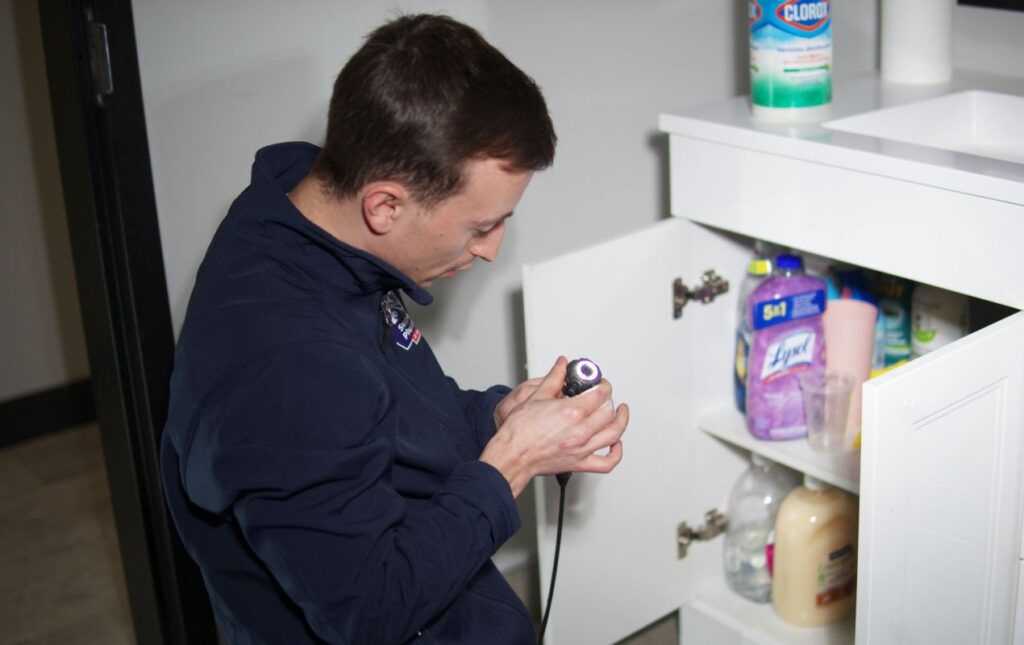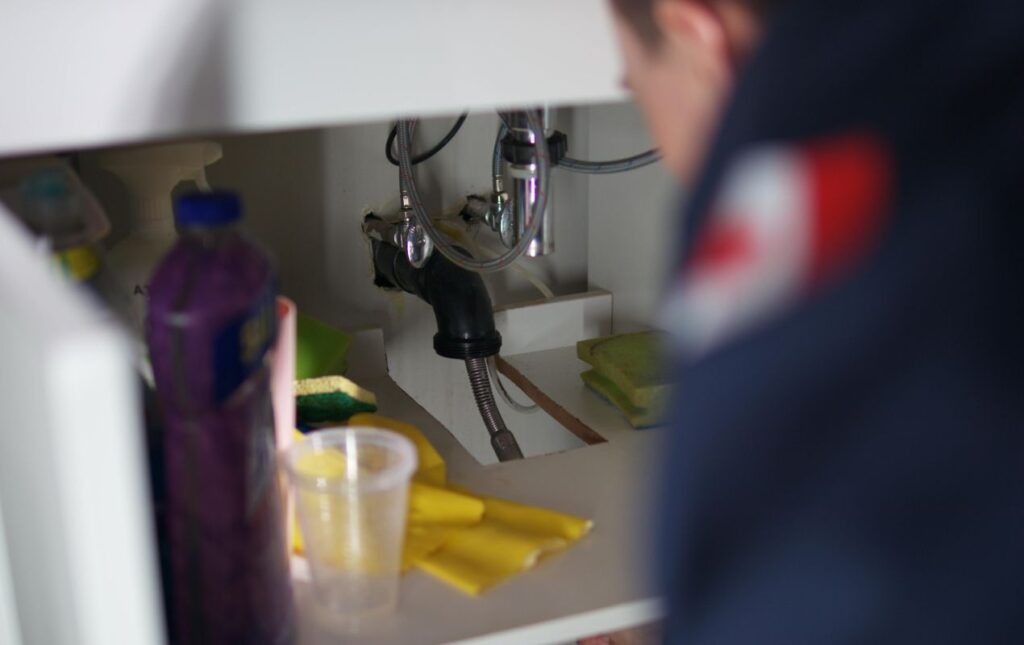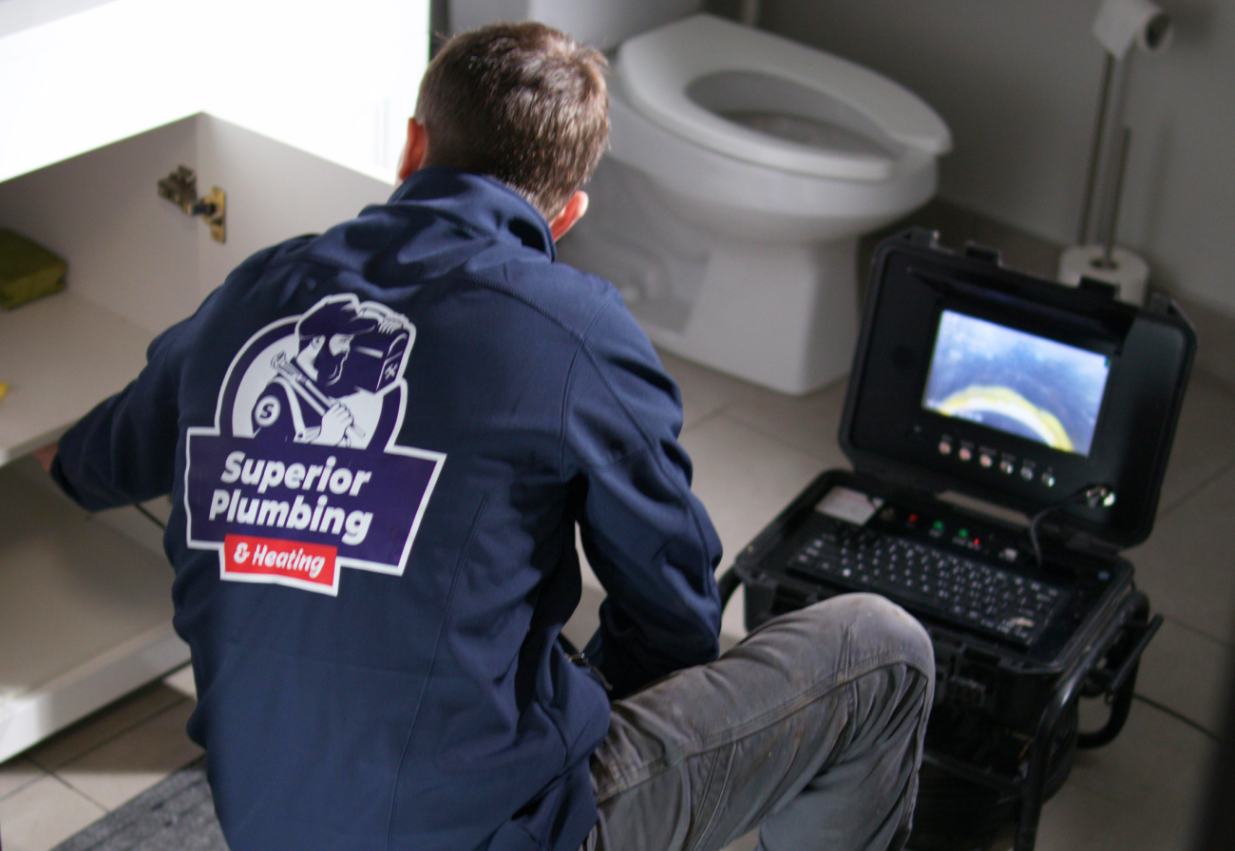Choose our drain cleaning service to keep your pipes shiny
It’s easy to forget about drains. However, once they get clogged up, your day will be ruined. If it happens, remember that you can rely on the professional drain cleaning specialists at Superior Plumbing & Heating to save the situation!

We have been meeting the needs of our customers for many years, thus we have developed a solid track record and extensive experience. Our technicians receive thorough technical training, allowing them to offer exceptional drain maintenance and cleaning services.

We guarantee timely arrival, transparent pricing and an extended warranty on our sewer line cleaning. With fully equipped trucks, we are ready to help you right now!
Rely on our drain cleaning experts to find a solution for any case
Let our drain cleaners provide you with top-quality plumbing services. All of them are licensed, certified, and equipped to do the job right, so you never have to worry about standing water in your bathtub, sink, or any other drain again. We can solve the following issues easily:
- Clogged bathroom drain. We all know that bathroom drains collect hair, soap, unwanted objects that go down the toilet, etc. If this waste is not cleaned and removed on time, it can result in unpleasant odours or even backup. We perform drain cleaning for showers and bathtubs and clean clogged toilets quickly and using only professional tools to protect you from any discomfort caused by bathroom drain blockage.
- Clogged kitchen drain. Kitchen sinks and drains accumulate grease, food particles and other waste. All this debris can clog the sink, drain pipe, and even the main drain. We use the right tools, equipment and cleaning solutions to keep your kitchen drain sparkling clean!
- Sewer backups. No one wants to deal with drain backup. Superior Plumbing & Heating is here to help you in your time of need! We use our equipment and expertise in sewer cleaning, repair and preventive maintenance and deliver 24/7 emergency drain and sewer cleaning services to keep you safe and comfortable.
- Clogged utility drains. If your utility room drain is clogged with dirt, soil and other debris or you are experiencing drainage problems in your basement, we have the solution! We offer plumbing services for basement drain cleaning, which won’t let clogs lead to flooding and damage your property!
We at Superior Plumbing & Heating are proficient in basic cleaning techniques and are happy to offer them to our valued customers. We use high-quality cleaning products that can remove the toughest clogs affordably, efficiently and for a long time!

Unrivalled drain clearing services quality backed by commitment
Our goal is to provide superior-quality drain clearing services at a favourable price. We guarantee:
- Advanced equipment. We keep up-to-date with the latest innovations and always keep up with the times. Our specialists use only the most modern equipment to clean your drain efficiently and safely.
- Addressing all types of clogs. We continually train our team to provide the highest quality drain unclogging. Our plumbers are true experts in dealing with clogs and use the latest technology and methods to fix them.
- Timeliness. The loyalty of our customers is based on mutual respect, so we will never keep you waiting. All requests are processed promptly, and our team will be at your doorstep the same day you contact us, at the time you have agreed.
If your home is suffering from a drain clog, rather than searching for drain cleaning near me, just give us a call and we’ll do our best to save the day!

 Call us and we’ll come to you
Call us and we’ll come to you 













